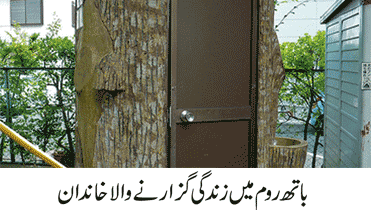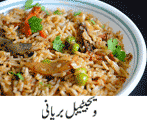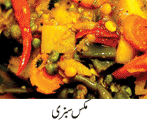Top Hadith About Hijabپردے کے بارے میں حدیث نبوی ﷺ
فہرست
Hadees About The Order of Hijab For Women 1. پردے کے حکم کے بارے میں
Narrated `Aisha: The wives of the Prophet used to go to Al-Manasi, a vast open place (near Baqi` at Medina) to answer the call of nature at night. `Umar used to say to the Prophet Let your wives be veiled, but Allah's Apostle did not do so. One night Sauda bint Zam`a the wife of the Prophet went out at `Isha' time and she was a tall lady. `Umar addressed her and said, I have recognized you, O Sauda. He said so, as he desired eagerly that the verses of Al-Hijab (the observing of veils by the Muslim women) may be revealed. So Allah revealed the verses of Al-Hijab (A complete body cover excluding the eyes).
Book: Sahih Bukhari, Chapter: Wudu/Ablution, Hadees No. 146Narrated `Umar (bin Al-Khattab): My Lord agreed with me in three things: -1. I said, O Allah's Apostle, I wish we took the station of Abraham as our praying place (for some of our prayers). So came the Divine Inspiration: And take you (people) the station of Abraham as a place of prayer (for some of your prayers e.g. two rak`at of Tawaf of Ka`ba) . (2.125) -2. And as regards the (verse of) the veiling of the women, I said, 'O Allah's Apostle! I wish you ordered your wives to cover themselves from the men because good and bad ones talk to them.' So the verse of the veiling of the women was revealed. -3. Once the wives of the Prophet made a united front against the Prophet and I said to them, 'It may be if he (the Prophet) divorced you, (all) that his Lord (Allah) will give him instead of you wives better than you.' So this verse (the same as I had said) was revealed. (66.5). Narrated Anas
Book: Sahih Bukhari, Chapter: As-salat The Prayer, Hadees No. 402رسول اللہ صلی اللہ علیہ وسلم کی بیویاں رات میں مناصع کی طرف قضاء حاجت کے لیے جاتیں اور مناصع ایک کھلا میدان ہے۔ تو عمر رضی اللہ عنہ رسول اللہ صلی اللہ علیہ وسلم سے کہا کرتے تھے کہ اپنی بیویوں کو پردہ کرائیے۔ مگر رسول اللہ صلی اللہ علیہ وسلم نے اس پر عمل نہیں کیا۔ ایک روز رات کو عشاء کے وقت سودہ بنت زمعہ رضی اللہ عنہا، رسول اللہ صلی اللہ علیہ وسلم کی اہلیہ جو دراز قد عورت تھیں، ( باہر ) گئیں۔ عمر رضی اللہ عنہ نے انہیں آواز دی ( اور کہا ) ہم نے تمہیں پہچان لیا اور ان کی خواہش یہ تھی کہ پردہ ( کا حکم ) نازل ہو جائے۔ چنانچہ ( اس کے بعد ) اللہ نے پردہ ( کا حکم ) نازل فرما دیا۔
Book: Sahih Bukhari, Chapter: Wudu/Ablution, Hadees No. 146میری تین باتوں میں جو میرے منہ سے نکلا میرے رب نے ویسا ہی حکم فرمایا۔ میں نے کہا تھا کہ یا رسول اللہ! اگر ہم مقام ابراہیم کو نماز پڑھنے کی جگہ بنا سکتے تو اچھا ہوتا۔ اس پر یہ آیت نازل ہوئی۔ ”اور تم مقام ابراہیم کو نماز پڑھنے کی جگہ بنا لو“ دوسری آیت پردہ کے بارے میں ہے۔ میں نے کہا تھا کہ یا رسول اللہ کاش! آپ اپنی عورتوں کو پردہ کا حکم دیتے، کیونکہ ان سے اچھے اور برے ہر طرح کے لوگ بات کرتے ہیں۔ اس پر پردہ کی آیت نازل ہوئی اور ایک مرتبہ نبی کریم صلی اللہ علیہ وسلم کی بیویاں جوش و خروش میں آپ کی خدمت میں اتفاق کر کے کچھ مطالبات لے کر حاضر ہوئیں۔ میں نے ان سے کہا کہ ہو سکتا ہے کہ اللہ پاک تمہیں طلاق دلا دیں اور تمہارے بدلے تم سے بہتر مسلمہ بیویاں اپنے رسول صلی اللہ علیہ وسلم کو عنایت کریں، تو یہ آیت نازل ہوئی «عسى ربه إن طلقكن أن يبدله أزواجا خيرا منكن» اور سعید ابن ابی مریم نے کہا کہ مجھے یحییٰ بن ایوب نے خبر دی، کہا کہ ہم سے حمید نے بیان کیا، کہا میں نے انس رضی اللہ عنہ سے یہ حدیث سنی۔
Book: Sahih Bukhari, Chapter: As-salat The Prayer, Hadees No. 402حَدَّثَنَا يَحْيَى بْنُ بُكَيْرٍ، قَالَ: حَدَّثَنَا اللَّيْثُ، قَالَ: حَدَّثَنِي عُقَيْلٌ، عَنِ ابْنِ شِهَابٍ، عَنْ عُرْوَةَ، عَنْ عَائِشَةَ، أَنَّ أَزْوَاجَ النَّبِيِّ صَلَّى اللَّهُ عَلَيْهِ وَسَلَّمَ كُنَّ يَخْرُجْنَ بِاللَّيْلِ إِذَا تَبَرَّزْنَ إِلَى الْمَنَاصِعِ وَهُوَ صَعِيدٌ أَفْيَحُ، فَكَانَ عُمَرُ يَقُولُ لِلنَّبِيِّ صَلَّى اللَّهُ عَلَيْهِ وَسَلَّمَ: احْجُبْ نِسَاءَكَ، فَلَمْ يَكُنْ رَسُولُ اللَّهِ صَلَّى اللَّهُ عَلَيْهِ وَسَلَّمَ يَفْعَلُ، فَخَرَجَتْ سَوْدَةُ بِنْتُ زَمْعَةَ زَوْجُ النَّبِيِّ صَلَّى اللَّهُ عَلَيْهِ وَسَلَّمَ لَيْلَةً مِنَ اللَّيَالِي عِشَاءً، وَكَانَتِ امْرَأَةً طَوِيلَةً، فَنَادَاهَا عُمَرُ: أَلَا قَدْ عَرَفْنَاكِ يَا سَوْدَةُ حِرْصًا عَلَى أَنْ يَنْزِلَ الْحِجَابُ، فَأَنْزَلَ اللَّهُ آيَةَ الْحِجَابِ.
Book: Sahih Bukhari, Chapter: Wudu/Ablution, Hadees No. 146حَدَّثَنَا عَمْرُو بْنُ عَوْنٍ، قَالَ: حَدَّثَنَا هُشَيْمٌ، عَنْ حُمَيْدٍ، عَنْ أَنَسٍ، قَالَ: قَالَ عُمَرُ: وَافَقْتُ رَبِّي فِي ثَلَاثٍ، فَقُلْتُ: ""يَا رَسُولَ اللَّهِ، لَوِ اتَّخَذْنَا مِنْ مَقَامِ إِبْرَاهِيمَ مُصَلًّى؟ فَنَزَلَتْ وَاتَّخِذُوا مِنْ مَقَامِ إِبْرَاهِيمَ مُصَلًّى سورة البقرة آية 125، وَآيَةُ الْحِجَابِ، قُلْتُ: يَا رَسُولَ اللَّهِ، لَوْ أَمَرْتَ نِسَاءَكَ أَنْ يَحْتَجِبْنَ فَإِنَّهُ يُكَلِّمُهُنَّ الْبَرُّ وَالْفَاجِرُ، فَنَزَلَتْ آيَةُ الْحِجَابِ، وَاجْتَمَعَ نِسَاءُ النَّبِيِّ صَلَّى اللَّهُ عَلَيْهِ وَسَلَّمَ فِي الْغَيْرَةِ عَلَيْهِ، فَقُلْتُ لَهُنَّ: عَسَى رَبُّهُ إِنْ طَلَّقَكُنَّ، أَنْ يُبَدِّلَهُ أَزْوَاجًا خَيْرًا مِنْكُنَّ فَنَزَلَتْ هَذِهِ الْآيَةُ""، وحَدَّثَنَا ابْنُ أَبِي مَرْيَمَ، قَالَ: أَخْبَرَنَا يَحْيَى بْنُ أَيُّوبَ، قَالَ: حَدَّثَنِي حُمَيْدٌ، قَالَ: سَمِعْتُ أَنَسًا بِهَذَا.
Book: Sahih Bukhari, Chapter: As-salat The Prayer, Hadees No. 402Hadees About Hijab From Foster Relatives 2. رضاعی رشتوں سے پردے کے بارے میں
A'isha (Allah be pleased with her) reported that her foster-uncle whose name was Aflah sought permission from her (to enter the house) but she observed seclusion from him, and informed Allah's Messenger ( صلی اللہ علیہ وسلم ) who said to her: Don't observe veil from him for he is Mahram (one with whom marriage cannot be contracted) on account of fosterage as one is Mahram on account of consanguinity.
Book: Sahih Muslim, Chapter No. 17, Hadees No. 3579It was narrated from 'Aishah that her paternal uncle through breast-feeding, whose name was Aflah, asked permission to meet her, and she observed Hijab before him. The Messenger of Allah was told about that and he said: Do not observe Hijab before him, for what becomes unlawful (for marriage) through breast-feeding is that which becomes unlawful through lineage.
Book: Sunan Nisai, Hadees No. 3303یزید بن ابی حبیب نے عراک ( بن مالک غفاری ) سے ، انہوں نے عروہ سے ، انہوں نے سیدہ عائشہ رضی اللہ عنہا سے روایت کی ، انہوں نے اسے خبر دی کہ ان کے رضاعی چچا نے ، جن کا نام افلح تھا ، ان کے ہاں آنے کی اجازت مانگی تو انہوں نے ان کے آگے پردہ کیا ( انہیں روک دیا ) اس کے بعد انہوں نے رسول اللہ صلی اللہ علیہ وسلم کو بتایا تو آپ نے فرمایا : " تم ان سے پردہ نہ کرو کیونکہ رضاعت سے بھی وہ سب رشتے حرام ہو جاتے ہیں جو نسب سے حرام ہوتے ہیں
Book: Sahih Muslim, Chapter No. 17, Hadees No. 3579ان کے رضاعی چچا افلح نے ان کے پاس آنے کی اجازت طلب کی تو انہوں نے ان سے پردہ کیا، اس کی اطلاع رسول اللہ صلی اللہ علیہ وسلم کو دی گئی تو آپ صلی اللہ علیہ وسلم نے ( عائشہ سے ) فرمایا: ”ان سے پردہ مت کرو، کیونکہ نسب سے جو رشتے حرام ہوتے ہیں، وہی رشتے رضاعت سے بھی حرام ہوتے ہیں“ ۱؎۔ کیونکہ جب حقیقی چچا سے پردہ نہیں ہے تو رضاعی چچا سے بھی پردہ نہیں ہے۔
Book: Sunan Nisai, Hadees No. 3303حَدَّثَنَا قُتَيْبَةُ بْنُ سَعِيدٍ، حَدَّثَنَا لَيْثٌ، ح وحَدَّثَنَا مُحَمَّدُ بْنُ رُمْح، أَخْبَرَنَا اللَّيْثُ، عَنْ يَزِيدَ بْنِ أَبِي حَبِيبٍ، عَنْ عِرَاكٍ، عَنْ عُرْوَةَ، عَنْ عَائِشَةَ، أَنَّهَا أَخْبَرَتْهُ: أَنَّ عَمَّهَا مِنَ الرَّضَاعَةِ يُسَمَّى أَفْلَحَ. اسْتَأْذَنَ عَلَيْهَا فَحَجَبَتْهُ، فَأَخْبَرَتْ رَسُولَ اللهِ صَلَّى اللهُ عَلَيْهِ وَسَلَّمَ. فَقَالَ لَهَا: «لَا تَحْتَجِبِي مِنْهُ، فَإِنَّهُ يَحْرُمُ مِنَ الرَّضَاعَةِ مَا يَحْرُمُ مِنَ النَّسَبِ
Book: Sahih Muslim, Chapter No. 17, Hadees No. 3579أَخْبَرَنَا قُتَيْبَةُ، قَالَ: حَدَّثَنَا اللَّيْثُ، عَنْ يَزِيدَ بْنِ أَبِي حَبِيبٍ، عَنْ عِرَاكٍ، عَنْ عُرْوَةَ، عَنْ عَائِشَةَ أَنَّهَا أَخْبَرَتْهُ، أَنَّ عَمَّهَا مِنَ الرَّضَاعَةِ يُسَمَّى أَفْلَحَ اسْتَأْذَنَ عَلَيْهَا فَحَجَبَتْهُ، فَأُخْبِرَ رَسُولُ اللَّهِ صَلَّى اللَّهُ عَلَيْهِ وَسَلَّمَ، فَقَالَ: لَا تَحْتَجِبِي مِنْهُ، فَإِنَّهُ يَحْرُمُ مِنَ الرَّضَاعِ مَا يَحْرُمُ مِنَ النَّسَبِ.
Book: Sunan Nisai, Hadees No. 3303Hadees About Hijab From Slaves 3. غلام سے پردہ کرنے کے بارے میں
Narrated Umm Salamah, Ummul Muminin: The Messenger of Allah ﷺ said to us: If one of you has a slave, and he enters into an agreement to purchase his freedom, and can pay the full price, she must veil herself from him.
Book: Sunan Abu Dawood, Chapter: Manumission Of Slaves Kitab Al-itaq, Hadees No. 3928´ام المؤمنین ام سلمہ رضی اللہ عنہا کے مکاتب غلام نبھان کہتے ہیں کہ` میں نے ام سلمہ رضی اللہ عنہا کو کہتے سنا کہ رسول اللہ صلی اللہ علیہ وسلم نے ہم سے فرمایا: ”جب تم عورتوں میں سے کسی کا کوئی مکاتب ہو اور اس کے پاس اتنا مال ہو جس سے وہ اپنا بدل کتابت ادا کر لے جائے تو تمہیں اس سے پردہ کرنا چاہیئے“ (کیونکہ اب وہ آزاد کی طرح ہے)۔
Book: Sunan Abu Dawood, Chapter: Manumission Of Slaves Kitab Al-itaq, Hadees No. 3928حَدَّثَنَا مُسَدَّدُ بْنُ مُسَرْهَدٍ، حَدَّثَنَا سُفْيَانُ، عَنْ الزُّهْرِيِّ، عَنْ نَبْهَانَ مُكَاتَبِ أُمِّ سَلَمَةَ، قَالَ: سَمِعْتُ أُمَّ سَلَمَةَ، تَقُولُ: قَالَ لَنَا رَسُولُ اللَّهِ صَلَّى اللَّهُ عَلَيْهِ وَسَلَّمَ: إِنْ كَانَ لِإِحْدَاكُنَّ مُكَاتَبٌ فَكَانَ عِنْدَهُ مَا يُؤَدِّي، فَلْتَحْتَجِبْ مِنْهُ .
Book: Sunan Abu Dawood, Chapter: Manumission Of Slaves Kitab Al-itaq, Hadees No. 3928Hadees About Hijab From Eunuch 4. مخنث/ہیجڑے سے پردے کے بارے میں
A'isha reported that a eunuch used to come to the wives of Allah's Apostle ( صلی اللہ علیہ وسلم ) and they did not And anything objectionable in his visit considering him to be a male without any sexual desire. Allah's Apostle ( صلی اللہ علیہ وسلم ) one day came as he was sitting with some of his wives and he was busy in describing the bodily characteristics of a lady and saying: As the comes in front tour folds appear on her front side and as she turns her back eight folds appear on the back side. Thereupon Allah's Apostle ( صلی اللہ علیہ وسلم ) said: I me that he knows these things; do not, therefore. allow him to cater. She (A'isha) said: Then they began to observe veil from him.
Book: Sahih Muslim, Chapter No. 39, Hadees No. 5691Narrated Aishah, Ummul Muminin: A mukhannath (eunuch) used to enter upon the wives of Prophet صلی اللہ علیہ وسلم. They (the people) counted him among those who were free of physical needs. One day the Prophet صلی اللہ علیہ وسلم entered upon us when he was with one of his wives, and was describing the qualities of a woman, saying: When she comes forward, she comes forward with four (folds in her stomach), and when she goes backward, she goes backward with eight (folds in her stomach). The Prophet صلی اللہ علیہ وسلم said: Do I not see that this (man) knows what here lies. Then they (the wives) observed veil from him.
Book: Sunan Abi Dawood, Chapter: Clothing Kitab Al-libas, Hadees No. 4107عروہ نے حضرت عائشہ رضی اللہ تعالیٰ عنہا سے روایت کی، کہا: رسول اللہ صلی اللہ علیہ وسلم کی ازواج کے پاس ایک مخنث آیا کرتا تھا اور ازواج مطہرات رضی اللہ تعالیٰ عنہا اسے جنسی معاملات سے بے بہرہ سمجھا کرتی تھیں۔ فرمایا: " ایک دن رسول اللہ صلی اللہ علیہ وسلم تشریف لائے اور وہ آپ کی ایک اہلیہ کے ہاں بیٹھا ہوا ایک عورت کی تعریف کررہا تھا وہ کہنے لگا: جب وہ آتی ہے تو چار سلوٹوں کے ساتھ آتی ہے اور جب پیٹھ پھیرتی ہے تو آٹھ سلوٹوں کے ساتھ پیٹھ پھیرتی ہے ۔ اس پر نبی صلی اللہ علیہ وسلم نے فرمایا : کیا میں دیکھ نہیں رہا کہ جو کچھ یہاں ہے اسے سب پتہ ہے ، یہ لوگ تمھارے پاس نہ آیا کریں۔ " تو انھوں ( امہات المومنین رضی اللہ تعالیٰ عنہا ) نے اس سے پردہ کر لیا۔
Book: Sahih Muslim, Chapter No. 39, Hadees No. 5691نبی اکرم صلی اللہ علیہ وسلم کی ازواج مطہرات کے پاس ایک مخنث ( ہجڑا ) آتا جاتا تھا اسے لوگ اس صنف میں شمار کرتے تھے جنہیں عورتوں کی خواہش نہیں ہوتی تو ایک دن نبی اکرم صلی اللہ علیہ وسلم ہمارے پاس تشریف لائے وہ مخنث آپ کی ایک بیوی کے پاس تھا، اور ایک عورت کی تعریف کر رہا تھا کہ جب وہ آتی ہے تو اس کے پیٹ میں چار سلوٹیں پڑی ہوتی ہیں اور جب پیٹھ پھیر کر جاتی ہے تو آٹھ سلوٹیں پڑ جاتی ہیں، رسول اللہ صلی اللہ علیہ وسلم نے فرمایا: خبردار! میں سمجھتا ہوں کہ یہ عورتوں کی باتیں جانتا ہے، اب یہ تمہارے پاس ہرگز نہ آیا کرے، تو وہ سب اس سے پردہ کرنے لگیں۔
Book: Sunan Abi Dawood, Chapter: Clothing Kitab Al-libas, Hadees No. 4107و حَدَّثَنَا عَبْدُ بْنُ حُمَيْدٍ أَخْبَرَنَا عَبْدُ الرَّزَّاقِ عَنْ مَعْمَرٍ عَنْ الزُّهْرِيِّ عَنْ عُرْوَةَ عَنْ عَائِشَةَ قَالَتْ كَانَ يَدْخُلُ عَلَى أَزْوَاجِ النَّبِيِّ صَلَّى اللَّهُ عَلَيْهِ وَسَلَّمَ مُخَنَّثٌ فَكَانُوا يَعُدُّونَهُ مِنْ غَيْرِ أُولِي الْإِرْبَةِ قَالَ فَدَخَلَ النَّبِيُّ صَلَّى اللَّهُ عَلَيْهِ وَسَلَّمَ يَوْمًا وَهُوَ عِنْدَ بَعْضِ نِسَائِهِ وَهُوَ يَنْعَتُ امْرَأَةً قَالَ إِذَا أَقْبَلَتْ أَقْبَلَتْ بِأَرْبَعٍ وَإِذَا أَدْبَرَتْ أَدْبَرَتْ بِثَمَانٍ فَقَالَ النَّبِيُّ صَلَّى اللَّهُ عَلَيْهِ وَسَلَّمَ أَلَا أَرَى هَذَا يَعْرِفُ مَا هَاهُنَا لَا يَدْخُلَنَّ عَلَيْكُنَّ قَالَتْ فَحَجَبُوهُ
Book: Sahih Muslim, Chapter No. 39, Hadees No. 5691حَدَّثَنَا مُحَمَّدُ بْنُ عُبَيْدٍ، حَدَّثَنَا مُحَمَّدُ بْنُ ثَوْرٍ، عَنْ مَعْمَرٍ، عَنِ الزُّهْرِي، وَهِشَامِ بْنِ عُرْوَةَ، عَنْ عُرْوَةَ، عَنْ عَائِشَةَرَضِيَ اللَّهُ عَنْهَا، قَالَتْ: كَانَ يَدْخُلُ عَلَى أَزْوَاجِ النَّبِيِّ صَلَّى اللَّهُ عَلَيْهِ وَسَلَّمَ مُخَنَّثٌ فَكَانُوا يَعُدُّونَهُ مِنْ غَيْرِ أُولِي الْإِرْبَةِ، فَدَخَلَ عَلَيْنَا النَّبِيُّ صَلَّى اللَّهُ عَلَيْهِ وَسَلَّمَ يَوْمًا وَهُوَ عِنْدَ بَعْضِ نِسَائِهِ وَهُوَ يَنْعَتُ امْرَأَةً، فَقَالَ: إِنَّهَا إِذَا أَقْبَلَتْ أَقْبَلَتْ بِأَرْبَعٍ، وَإِذَا أَدْبَرَتْ أَدْبَرَتْ بِثَمَانٍ، فَقَالَ النَّبِيُّ صَلَّى اللَّهُ عَلَيْهِ وَسَلَّمَ: أَلَا أَرَى هَذَا يَعْلَمُ مَا هَاهُنَا، لَا يَدْخُلَنَّ عَلَيْكُنَّ هَذَا فَحَجَبُوهُ .
Book: Sunan Abi Dawood, Chapter: Clothing Kitab Al-libas, Hadees No. 4107The word “Orat” (woman) literally means “open” or vulnerable. As an “Orat” is vulnerable to attacks by lust, evil eyes and criminal hands, she already needs protection. And when a woman doesnot wear a Hijab and assume an inviting posture, she is at the greater risk of being subjected to violence with long lastingand often destructive consequences. Putting a veil, on the other hand, serves as a safety cover and shields the women against attacks, misuse, or victimization.
Translated as “veil” in English, Hijab is a piece of stitched cloth intended to cover a woman’s head, face, chest and other body parts. In its traditional form, the veil is worn to maintain modesty and privacy of women from any male outside of their immediate family. There are several different types of Hijab, such as Abaya, Burqa, Chador, Dupatta, Niqaab, headscarf, and so on. The Burqa not only covers the entire body, but it is loose enough to completely hide the feminine posture.
While the liberalistsare touting Hijab as something unethical, unacceptable and a sort of injustice to women, there are dire consequences of such violations and they are obvious.
Islam strongly emphasizes the practice of decency and modesty in mutual interaction between members of the opposite sex. In addition to top Hadith about Hijab, there are verses of the Noble Quran which lay stress on the veil.
Who Should Observe Hijab?
It is not just the women, men have also been ordered to observe Hijab in the Holy Quran. Here ‘observance of Hijab’ means lowing the gaze and guarding the modesty. Allah Almighty talks about Hijab in a couple of verses of the Noble Quran. In chapter 24 (Surah Al-Nur), men have been advised to cast down their glances and guard the private parts. And women have been ordered to do the same in the very next verse (31) of the same Surah.
Top Hadith About Hijab:
Here you will learn the top Hadees about Hijab – Orton K Parday K Baray Mein Ahadees. The Ahadees Sharif have been provided in Arabic along with their translation into English and Urdu.Hadees No. 146, Chapter Wudu/Ablution, Sahih Bukhari is particularly notable.











